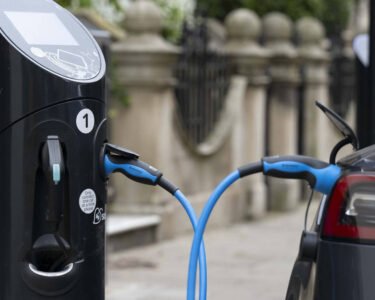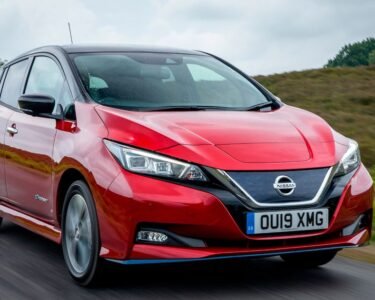BBC Business reporter
 Getty Images
Getty ImagesThe cost of a new electric car will soon be reduced by up to £3,750 after the government introduced grants to encourage drivers to move away from petrol and diesel vehicles.
The discounts will apply to eligible vehicles costing up to £37,000, with the most environmentally friendly vehicles seeing the biggest reductions, the Department for Transport (DfT) said.
Carmakers can apply for funding from Wednesday, with the RAC saying discounted cars should start appearing at dealerships “within weeks”.
But some drivers have previously told the BBC that ultimately, the UK needs more charging points to spur people to buy electric vehicles (EVs).
The government has pledged to ban the sale of new fully petrol or diesel cars and vans from 2030.
Under the scheme, discounts will range between £1,500 and £3,750 and buyers will be able to claim a discount at the dealership.
The grants to lower the cost of EVs will be funded through a £650m scheme, and will be available for three years.
There are around 1.3 million electric cars on Britain’s roads but currently only around 82,000 public charging points.
At the weekend, Transport Secretary Heidi Alexander said the government would invest £63m to fund EV charging points.
But it will not arrive soon enough for Carolyn Hammond, 49, from North Devon.
“We would like to invest in an electric car, but we only have “single phase” electricity in our home,” she told the BBC. “That means there isn’t enough electricity to run the household and charge an electric car.”
She says that is the case for her neighbours too. “To upgrade our electricity connection would be £20k plus VAT, then there are more costs when putting in charging points, and buying a car,” she said.
“Just makes it, sadly, too pricey.”
 Carolyn Hammond
Carolyn HammondAlexander said: “This EV grant will not only allow people to keep more of their hard-earned money, it’ll help our automotive sector seize one of the biggest opportunities of the 21st century.”
But Shadow Transport Secretary Gareth Bacon said: “Labour are forcing families into more expensive electric vehicles before the country is ready,” adding that EVs were a “product people demonstrably do not want”.
“Labour are putting net zero ahead of common sense and ahead of the family finances,” he said.
The government said: “The discount means that zero emission cars are now cheaper to buy and run than ever before, and comes on top of preferential tax rates, delivering real savings for working families.”
‘I don’t regret switching’
Jimmy Kim, a 43-year-old from London, has been weighing up whether or not he can afford to move to electric.
“The financial argument for an EV vehicle compared to a efficient petrol or hybrid vehicle doesn’t add up at all,” he said.
He added that the long-term cost of EV ownership, “coupled with the fact that cars devaluate after 10 years”, mean it “doesn’t make any logical sense to buy one in the current economic climate”.
But Paul Cole, 38, also from London, said he wouldn’t go back to a petrol car.
 Paul Cole
Paul Cole“I would say having made the switch that it is brilliant and you should do it if you have the infrastructure to do so,” he told the BBC.
“We had recently moved house and there was a charging point already in the driveway when we moved in. We had since had solar panels installed as well, so an electric car made perfect sense,” he added.
He adds that to save money on the electricity needed to charge the car, he charges the car overnight when electricity is the cheapest.
“We’ve now had it two years, and we haven’t regretted getting it for a moment.”
Drivers buying electric cars can get tax breaks if their employer has a company car scheme.
Grants for EVs have previously been available, but were scrapped in 2022 under Conservative leadership.
First started in 2011, the grants were designed to make buying new electric vehicles more affordable by providing a discount of £1,500 for cars under £32,000.
When the scheme ended, the Department for Transport said funding would be “refocussed” towards the main barriers to the electric vehicle transition, such as public charging, and supporting the purchase of electric vans, taxis and motorcycles.
Additional reporting by Your Voice, Your BBC and Connie Bowker.





